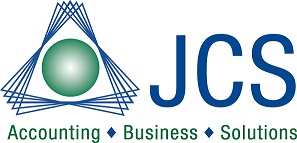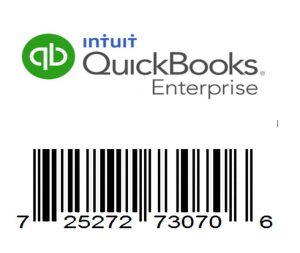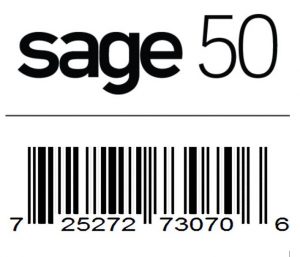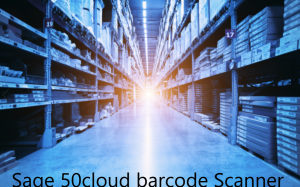Sage 100 Barcode Software
Tips For Sage 100 Barcode Scanning
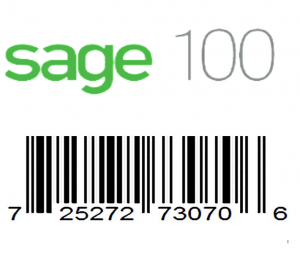
Sage 100 Barcode
Automate your business and reduce errors with Sage 100 Barcode Scanning Capabilities
Sage 100 ERP barcode for warehouse automation is designed to improve inventory accuracy and warehouse efficiency, allowing your businesses to focus on your operations. Learn More
Streamline your Sage 100 picking and packing process
Streamline your warehouse processes using Sage 100 ERP (formerly Sage ERP MAS 90 and
200) Bar Code to enable your shipping and receiving staff to collect data rapidly and accurately.
Increase your shipping and receiving staff’s data collection using cradle-style or radio-frequency
handheld devices.
Real time inventory information
With reliable, real-time Sage 100 inventory data, you can make quicker more informed business decisions. Gather, validate, and verify an array of data utilizing the power of the features and functionality of Bar Code including inventory counts, quantities, item numbers, and lot and serial numbers of goods shipped and received. Save valuable time over data-intensive manual entry. Advanced Bar Code features can reduce costly data entry errors, such as shipping mistakes such as, shipping the wrong product or the wrong quantity to customers. In addition, Bar Code can automate procedures for dozens of employees, and many businesses discover that bar coding pays for itself within a very short time.
What is a Sage 100 Barcode?
Typically printed on a label to identify a Sage 100 inventory item. A barcode is a method of representing part numbers / SKU data in a visual, machine-readable form. Barcodes represent characters of data by varying the widths and spacings of parallel lines. These barcodes, now commonly referred to as linear or one-dimensional, can be scanned by special optical scanners, called barcode readers.
What are barcode readers?
A barcode reader (or barcode scanner) is an optical scanner that can read printed barcodes, decode the data contained in the barcode. These can be directly attached to a hardware device, a rugged handheld scanning device and today smart phones.
What are UPC codes?
UPC codes are also knows as bar codes, but are issued by a central authority for a fee, and are thus unique in all the world. If you’re not selling through a retail chain, you don’t need them.
What do I need to use a barcode scanning system with Sage 100?
- The Sage 100 Bar Code module
- Scanco’s Bar Code suite or Scan Force Barcode Bundle
- A barcode printer
- Smart Phones
MAS 90 and 200) customers who want to automate supply chain operations. Now it is easy to collect data for pick, packing, shipping and verify current inventory levels during a physical inventory count. With Sage 100 options there are now 5 users included that can run on a smart phone.
WOScan and JOScan — Manufacturing Barcode Automation for Sage 100 Manufacturing
The Sage 100 Bar Code module along with Scanco’s Bar Code suite, allows Sage 100 ERP (formerly Sage ERP MAS 90 and 200) Use on the shop floor to collect material and time and work tickets if desired.
What is Included in the Sage 100 Barcode Module?
Barcode Label Printing – Barcode labels can be printed using the Sage 100 label printing software for items that do not already have a barcode label. Use this label during receiving, shipping and manufacturing. With the simple click of a button, your data is updated into your Sage 100 ERP system from your barcode scanner. This includes purchase order receipts, inventory, sales order invoices, bill of materials, and other transactions.
Import Inventory and Purchase Order Transactions – Inventory information and purchase orders are imported directly into the system. Once imported, users can edit and update these transactions as needed.
Picking Sheet Printing – This barcoded picking sheet can be used during the shipping process. Barcoded sales order numbers, quantities, and item numbers are printed and scanned as the goods are shipped. These transactions are updated into Sage 100.
What can I barcode with Sage 100 Barcode Module and Add-ons?
- Barcode Lot/Serial Labels
- Barcode Purchase Order Receipt Labels
- Barcode Sales Order Printing
- Barcode Bill of Materials Picking Sheet
- Barcode Production Labels
Increase Efficiencies in your Sage100 Warehouse operations
- Streamline warehouse processes
- Scan Sales Orders, Shipments to Invoices
- Scan Purchase Orders, Receipts to Inventory
- Faster and more
- Accurate data collection
- Process More Data
- Support efficient workflows
Sage 100 Scanners
If you use a directly attached scanner you can plug it in to your hardware and scan a few bar codes in the item maintenance window, while adding lines to a sales order or purchase order. Most Barcode “Wedge” scanners do not have to be configured. They have computer chip in them that decodes just about any barcode they come across. Some are programmable, so that when you pull the trigger and they pick up a valid bar code, they will send (for example) [enter] [tab] <the ascii text in the barcode> [tab] [tab] to the program being used.
There are many different formats of bar code. One of the easiest ways to print barcodes, is to use a “3 of 9” font in Windows. (sometimes called Code 39). There’s no checksum to calculate and print, all you need to do is put an asterisk (*) character at the beginning and end of the text that you want to encode. (Obviously, you can’t use the asterisk as part of any barcodes). Requires an asterisk at the beginning and end of the ASCII text. It’s start / stop codes are easy to add (i.e. in Excel)
Most barcodes have a start / stop code, and / or a Checksum. The start / stop code is how the bar code reader knows it just saw the whole barcode. The Checksum is how the reader knows it saw it correctly. Code 39 uses only a start / stop code. Code 128 uses both.
What is Sage 100 Barcode Code 39?
Code 39 is a variable length, discrete barcode symbology. Code 39 uses characters that are displayed in this example it’s “=Concatenate(“*”,A1,”*”). The Code 39 specification defines 43 characters, consisting of uppercase letters, numeric digits and a number of special characters. An additional character is used for both start and stop delimiters.
Code 39 is a bit more prone to misreads, since there is no checksum. (but still less prone to error than manually entering these item ID’s. If you are looking at using Code 39 AND picking up UPC-A codes then the part number will need to be the UPC number unless your scanner can interpret both.
More about Code 39 can be found: http://en.wikipedia.org/wiki/Code_39.
What is Sage 100 Barcode Code 128?
Code 128 is a high-density linear barcode symbology defined in ISO/IEC 15417:2007. It is used for alphanumeric or numeric-only barcodes. It can encode all 128 characters of ASCII and, by use of an extension symbol, the Latin-1 characters defined in ISO/IEC 8859-1.
Code 128 Requires a ‘Check Digit’ calculation included in the barcode. Also uses encoded start / stop codes that aren’t the same as each other. It is possible to have a scanner use UPC-A codes as long as the inventory item numbers are the UPC-A numbers unless your scanner can interpret both.
More about Code 128 can be found: http://en.wikipedia.org/wiki/Code_128 .
Where do I get more information on fully integrated Sage 100 Barcode Scanner?
Sage 100 now offers mobile barcode scanning with Sage Mobility for Barcode. Fewer errors, process more transactions easier and run leaner operations. Sage 100 scanners use pre-existing barcodes or it can generate new ones for you. Plus, it’s completely integrated with Sage 100 and automatically fills fields with the correct information when barcodes are scanned.
Sage 100 Barcode scanning integrates seamlessly with Enhanced Pick, Pack, and Ship and true physical inventory counts or cycle counts. For more information about Sage 100 Scanners for Sage 100 visit www.jcscomputer.com Or give us a call 800-475-1047. Put our 30 years of Sage 100 experience to work for you. Sage Timeslips Support
